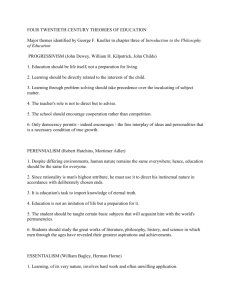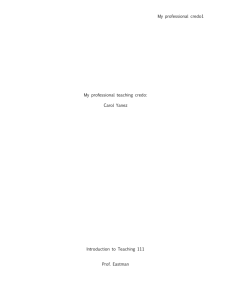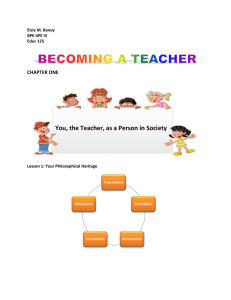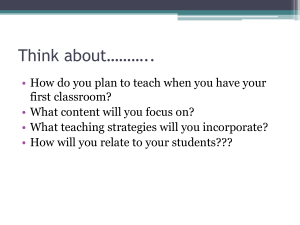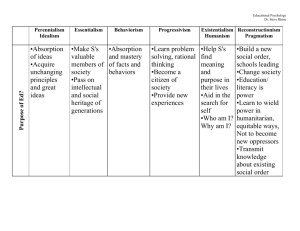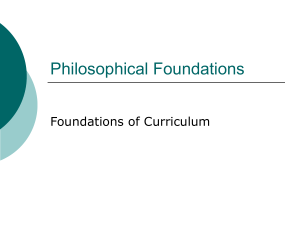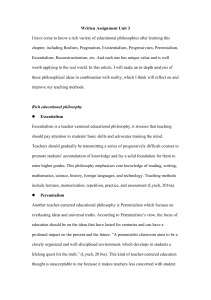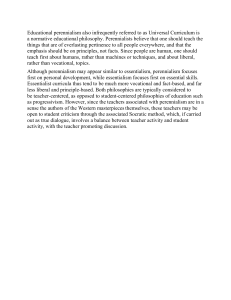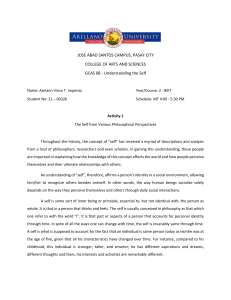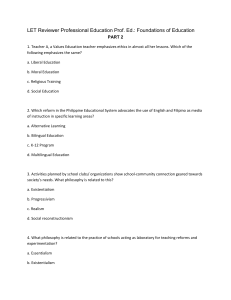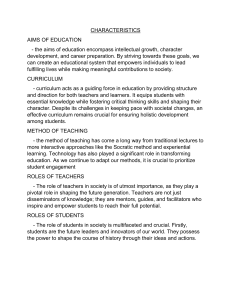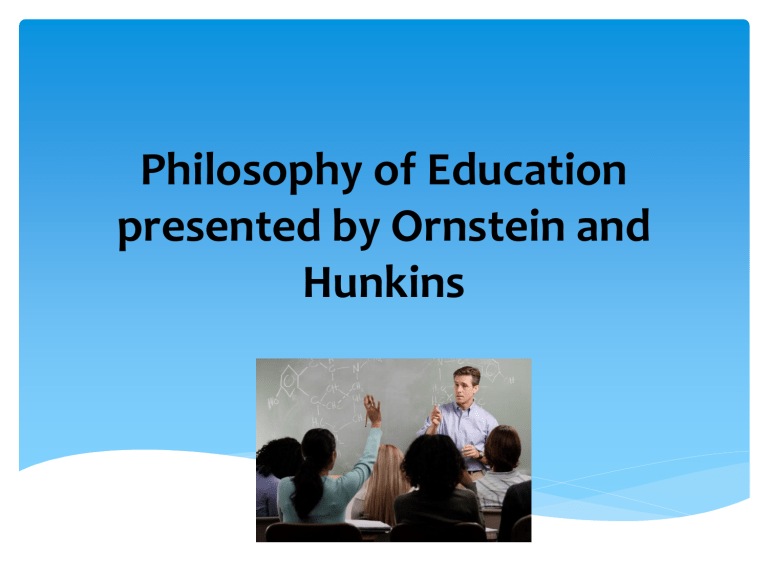
Philosophy of Education presented by Ornstein and Hunkins Philosophy and Its Meaning The word philosophy comes from the Greek words philo, meaning love, and sophos, meaning wisdom. It is a love of wisdom. 2 Philosophies of Education Essentialism Existentialism Perennialism Progressivism Reconstructionism 3 Essentialism Aim: To promote intellectual growth of learners to become competent Role: Teachers are sole authorities in the subject area Focus: Essential skills of the 3R’s; essential subjects Trends: Back to basics, Excellence in education, cultural literacy 4 Perennialism Aim: To educate the rational person; cultivate intellect Role: Teachers assist students to think with reason (critical thinking HOTS) Focus: Classical subjects, literary analysis, Curriculum is enduring Trends: Use of great books (Bible, Koran, Classics) and Liberal Arts. 5 Progressivism Aim: Promote democratic social living Role: Teachers lead for growth and development of lifelong learners Focus: Interdisciplinary subjects, Learnercentered, Outcomes-based Trends: Equal opportunities for all, Contextualized curriculum, Humanistic education 6 Reconstructionism Aim: To improve and reconstruct society. Education for change Role: Teacher acts as agent of change and reforms Focus: Present and future educational landscape Trends: School and curricular reform, Global education, Collaboration and Convergence, Standards and Competencies 7 Questions? 8
